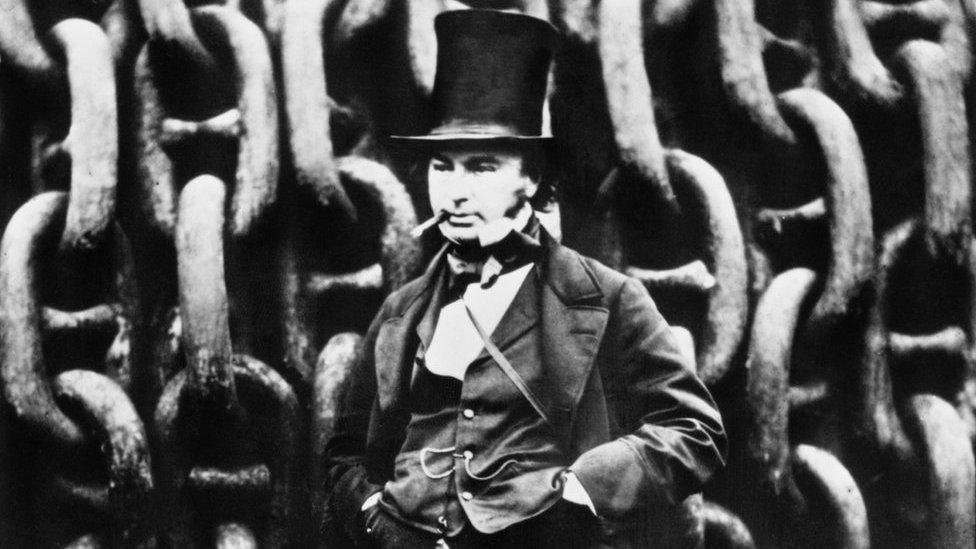SS Great Britain in 'survival mode' faces £2m loss
- Published
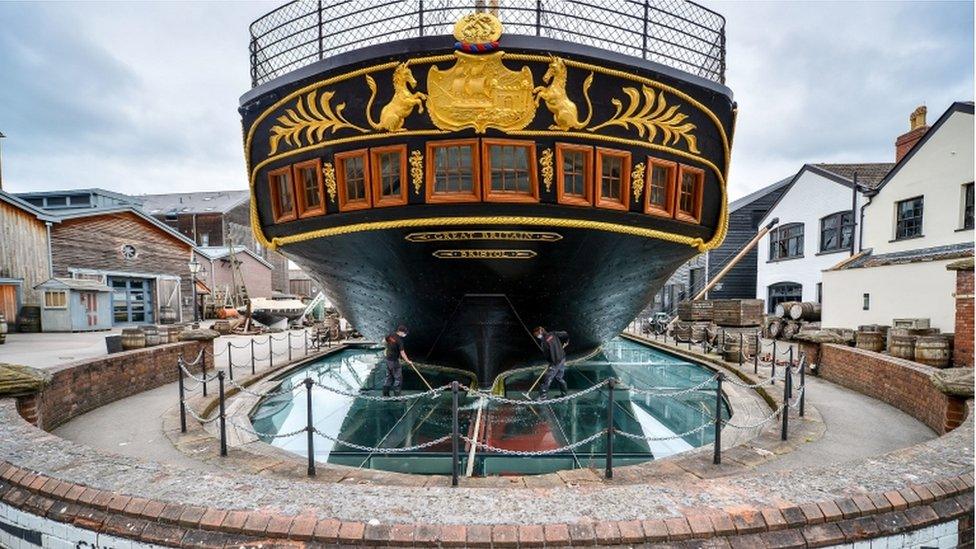
Staff are preparing the site for reopening on Saturday
The charity that runs the SS Great Britain has warned it is in "survival mode" and faces losses of £2m.
This week should have seen celebrations to mark 50 years since Isambard Kingdom Brunel's iron steam ship was returned to Bristol after it was salvaged.
But events to mark the anniversary have been postponed because of coronavirus.
The trust that manages the attraction said people in Bristol need to visit when it reopens, if it is to remain in the city.
When Brunel's world-famous ship returned to Bristol in 1970, after being recovered from waters off the Falkland Islands, it was greeted by 100,000 people.
Matthew Tanner, chief executive of the SS Great Britain Trust, hopes that affection will help overcome the current financial hardships.
"It was going to be a big year for us because of the anniversary and instead we had to switch to survival mode," he said.
"We've lost £1m in revenue since lockdown began and by September we project that will be £2m.
"The furlough scheme has been a lifeline, and we're applying for further funding, but we've always been a charity which has operated without public subsidies in the past.
"We're saying to the people of Bristol that if they want to keep having this unique experience in the city, they need to come and visit."
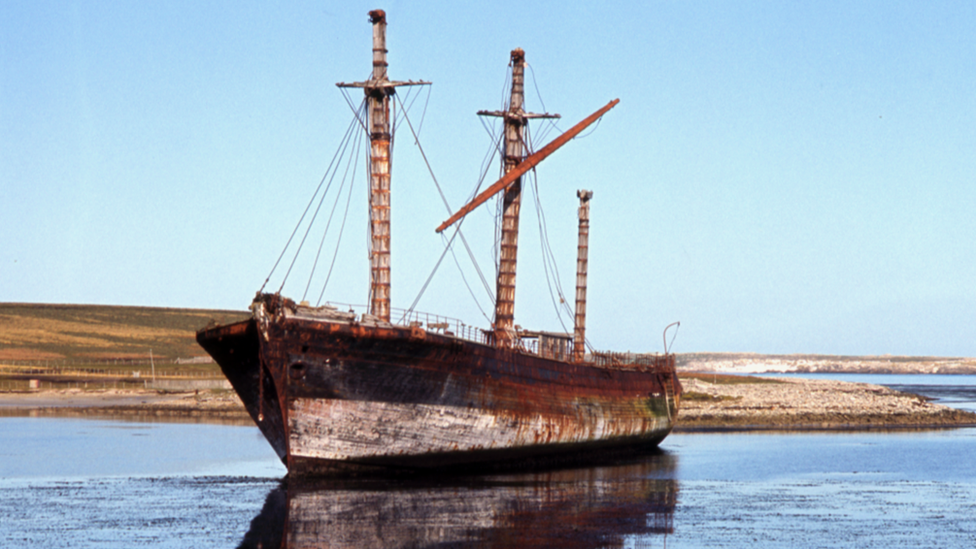
The ship abandoned in the Falkland Islands
The Bristol Harbour Festival, which attracts about 250,000 visitors each year, should have been taking place this weekend, with the SS Great Britain celebrations at its heart.
Due to the Covid-19 pandemic the events have been postponed until next summer but the ship's decks will reopen on Saturday, with restrictions.
"We're doing a lot of things online but it's not the same," said Mr Tanner.
"There's something tangible about standing on the deck, because although there has been a lot of restoration work she's still the ship that sailed a million miles at sea and went around the world 32 times."
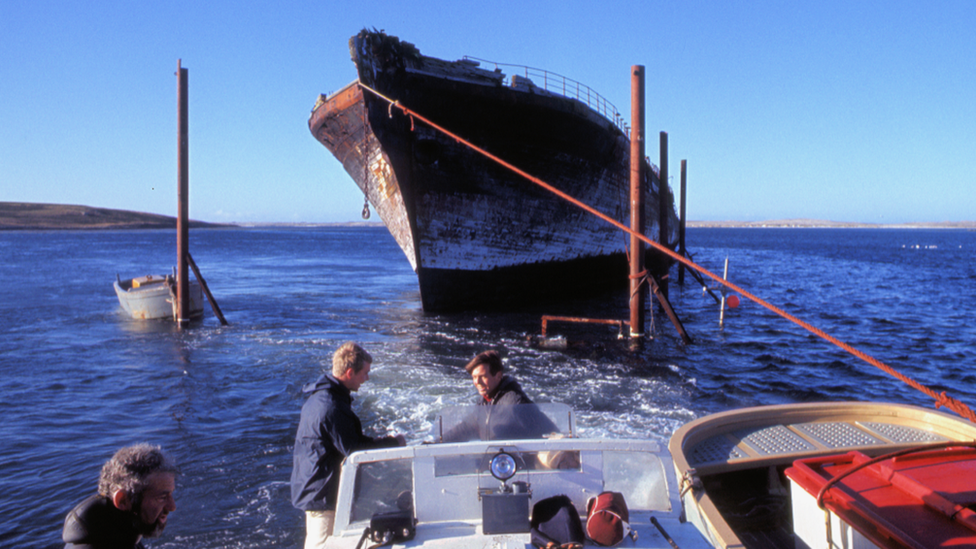
The ship being placed on the submersible pontoon ready for her journey back to Bristol
Brunel's ocean-going iron steam ship, the first in the world, was at sea for 43 years, before spending 84 years in the Falklands, where it was used as a floating warehouse for the first 51 years and scuttled for the remaining 33.
But a pioneering salvage operation led to a major conservation project.
Among the huge crowds that gathered for the ship's return to Bristol was 11-year-old Kim Hicks who admits now that she did not realise the enormity of the occasion.
Armed with rose petals gathered from their garden, she and her mother waited at the Clifton Suspension Bridge - also designed by Brunel.
"As the ship came under, my mother opened the box of rose petals and we threw them over the side," she said.
"It was the first time Brunel's ship had passed under his bridge, which wasn't there when she first left the city."
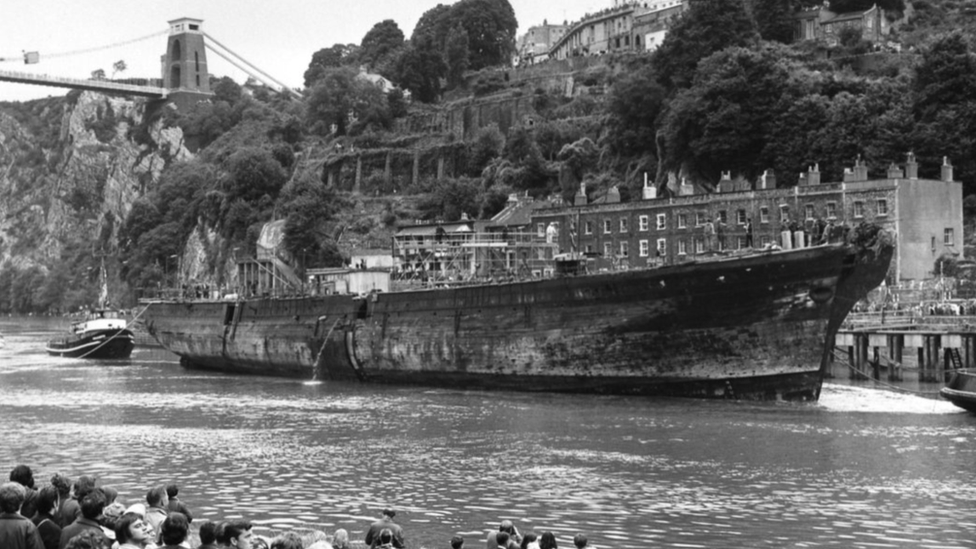
SS Great Britain was towed into Bristol under the Clifton Suspension Bridge in 1970

SS Great Britain
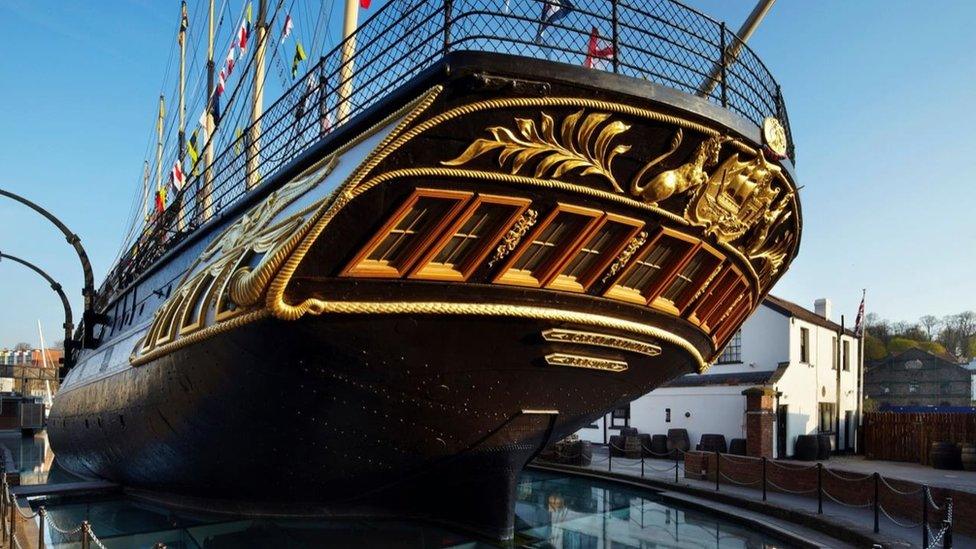
Launched in 1843, SS Great Britain was the first iron-hulled ocean liner
Measuring 322 ft (98m) in length, it was also the biggest ship in the world at that time
It took passengers from the UK to the United States, Australia, India and Crimea
The first English cricket team to travel to Australia travelled on SS Great Britain
In the late 1880s the ship ended up in the Falkland Islands where, after a spell being used to store coal, she was taken offshore in 1937 and sunk in Sparrow Cove
In 1970, a salvage operation partly funded by Sir Jack Hayward and Sir Paul Getty got under way
The hull was raised from the sea bed and dozens of mattresses, donated by Falkland Islanders, were used to plug leaks
Divers remained on board in case anything went wrong as the ship was carried 8,000 miles to Bristol on a pontoon
They were still on the ship, in their wetsuits, as SS Great Britain came up the River Avon
- Published18 August 2019
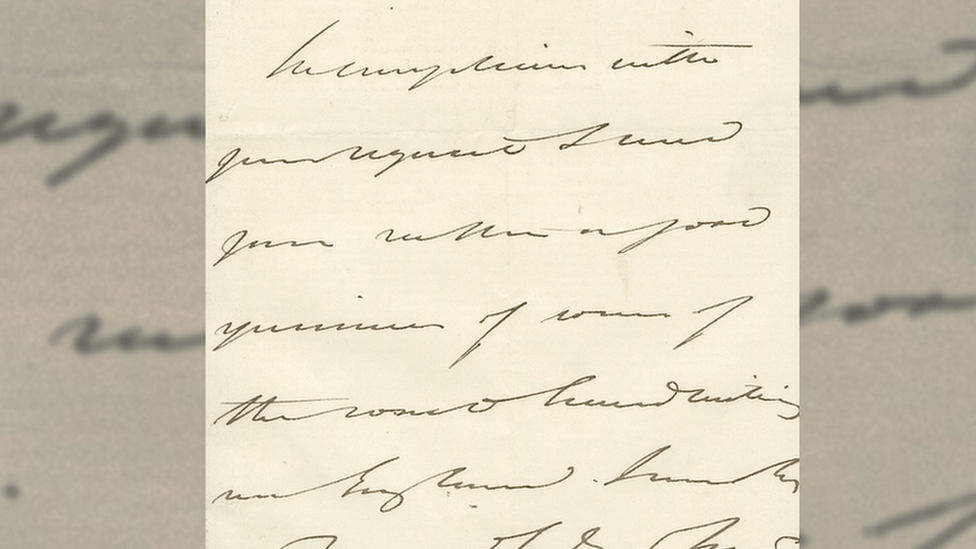
- Published16 December 2011
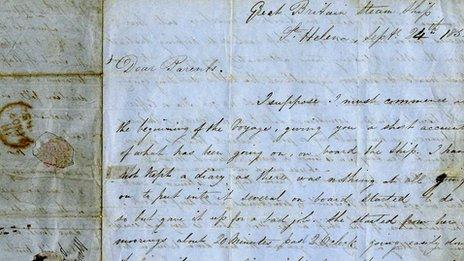
- Published23 March 2018
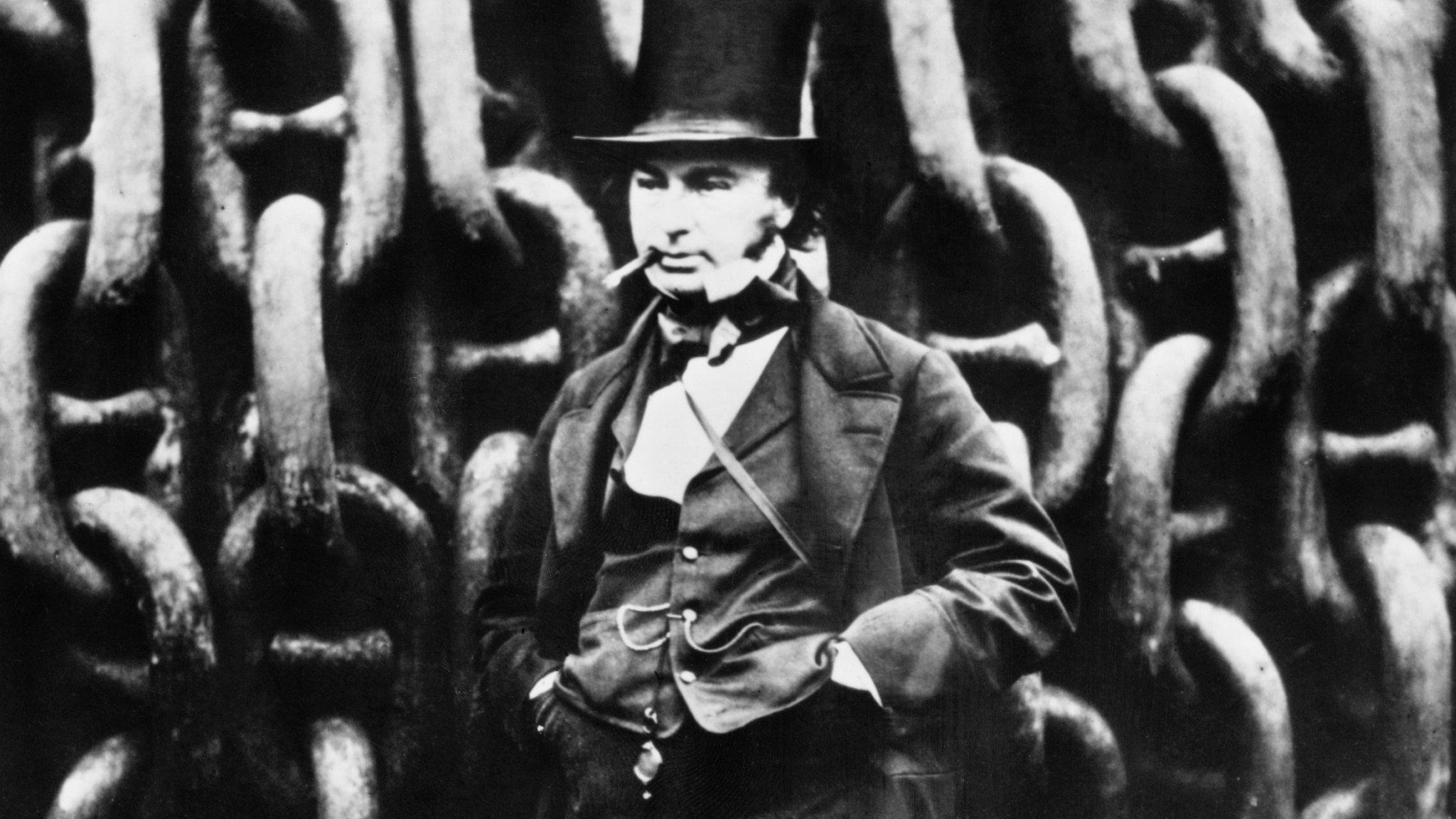
- Published18 May 2012
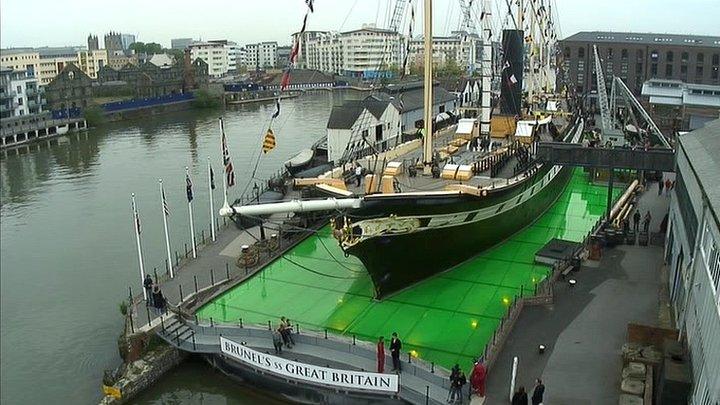
- Published3 April 2019
